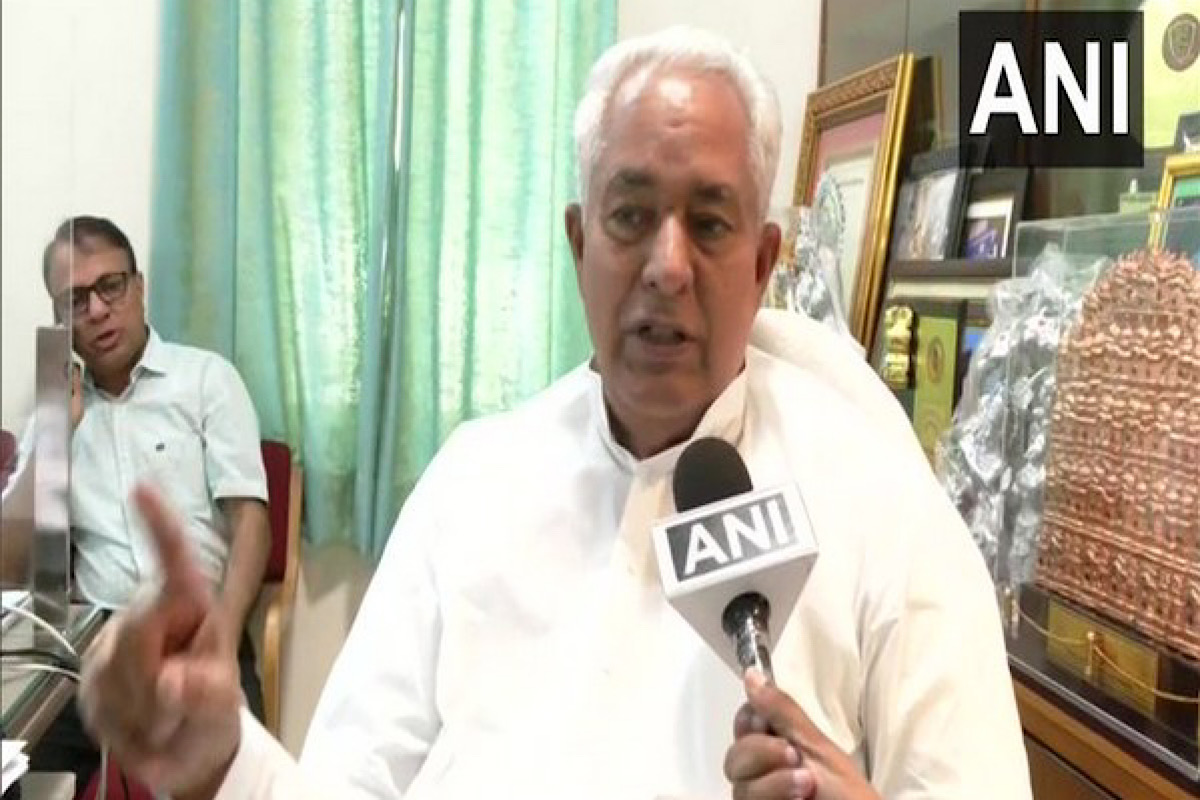Counting of votes begins in Rajasthan
Counting of votes polled in seven assembly segments of Rajasthan in November 13 by-election began amid 3-tier security arrangements at 7 counting centers Satuday morning.
The state minister also said that the bill was also sent to a select committee before it was passed.

Rajasthan state health minister Parsadi Lal Meena [Photo:ANI]
Amid massive protest by the doctors in Rajasthan against the Right to Health (RTH) Bill, the state health minister Parsadi Lal Meena on Monday said that the government would not take back the bill at any cost.
“If there’s any problem with the bill, then we are ready to hold a discussion but the bill won’t be taken back. At any cost, we will not take back the bill,” Meena said while talking to ANI. He further said that the protesting doctors are taking “undue advantage”.
“After a lot of discussions, the Right to Health bill was brought by our government. People of the state are being benefitted from it. We held discussions and abided by all demands of protesting doctors. CM has appealed to them to come back to work. They are taking undue advantage,” he further said.
The state minister also said that the bill was also sent to a select committee before it was passed.
Advertisement
“If required we will recruit more doctors if protests continue, we will do whatever is required,” he added.
Parsadi Lal Meena’s reaction came amid the strike of private doctors and hospitals regarding the Right to Health Bill.
Significantly, private hospitals and doctors in Rajasthan have been protesting against the Right to Health (RTH) bill through a work boycott urging the state government not to implement it.
Rajasthan, last week passed the Right to Health Bill, which gives every resident of the state the right to avail free Out Patient Department (OPD) services and In Patient Department (IPD) services at all public health facilities, becoming the first state to do so.
Also, similar healthcare services will be provided free of cost at select private facilities.
According to the Bill, free healthcare services, including consultation, drugs, diagnostics, emergency transport, procedure and emergency care, will be provided at all public health institutions and select private facilities subject to conditions specified in the rules, which will be formulated now.
Also, all residents will be entitled to emergency treatment and care for accidental emergencies without prepayment of any fee or charges.
In a case of medico-legal nature, the bill says no public or private hospital can delay treatment merely on the grounds of receiving police clearance.
The bill gives a right to the resident of the state to emergency treatment and care “without prepayment of requisite fee or charges” by any public health institution, health care establishment and designated health care centres.
The Bill was passed amid protests by the opposition BJP, which wanted to bring in certain changes to the provisions, as well as an agitation by a section of doctors.
Advertisement